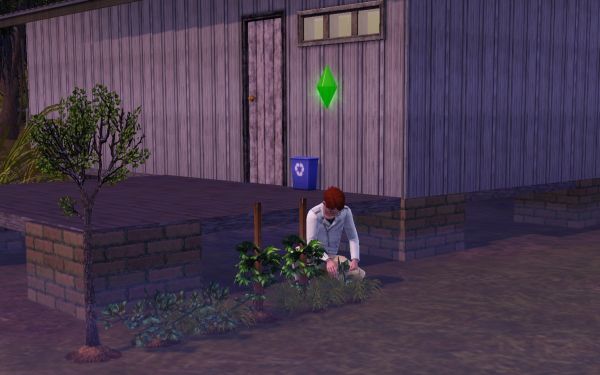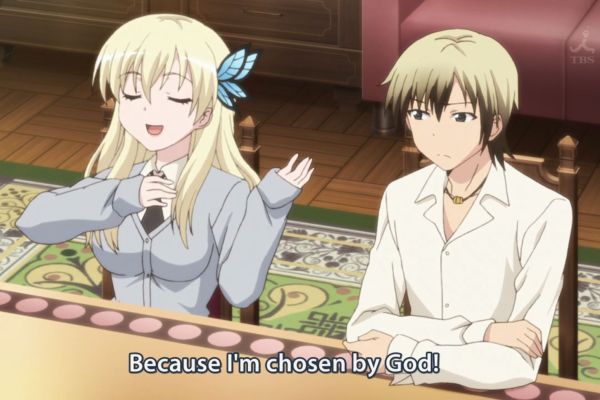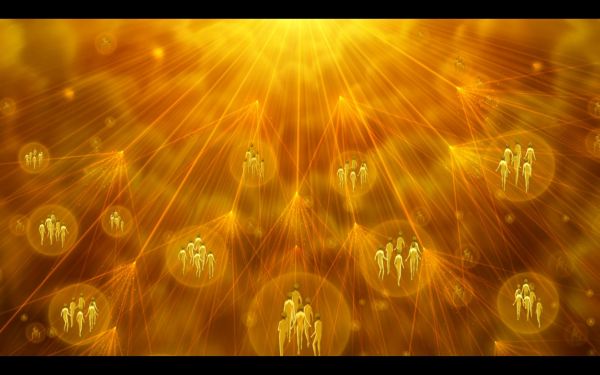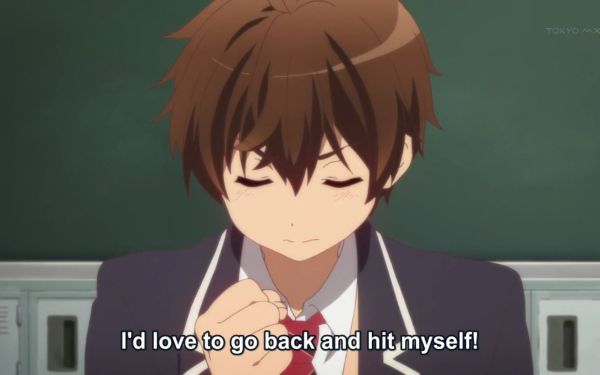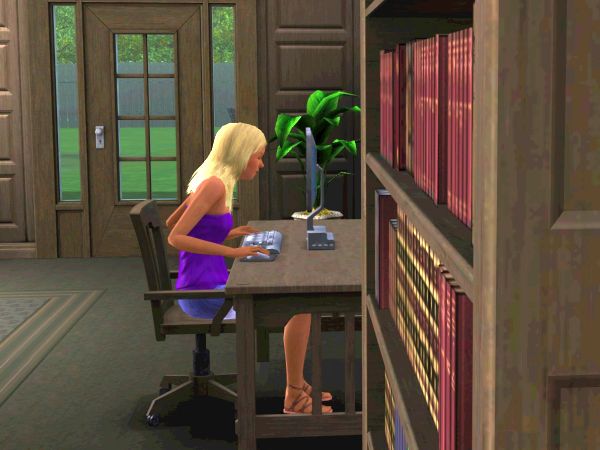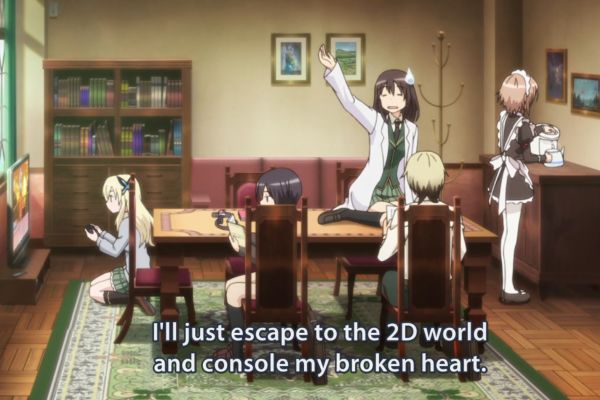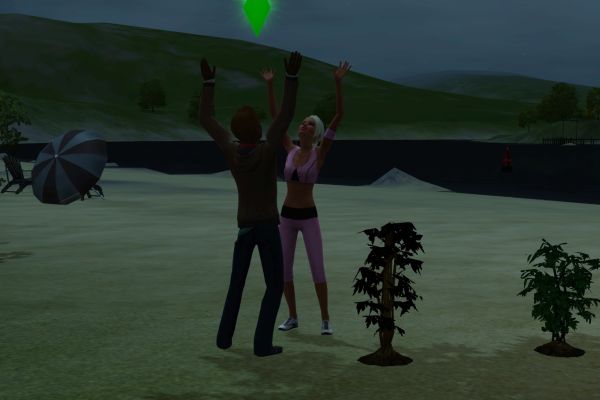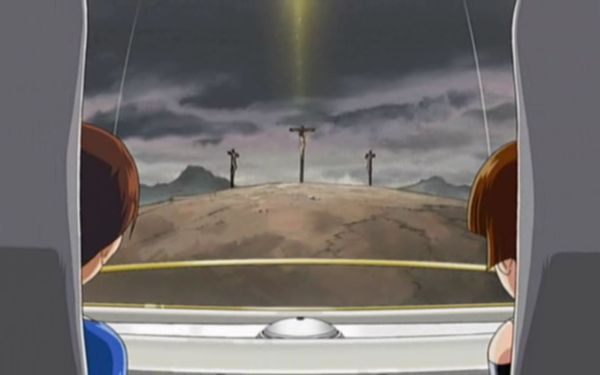
In the Japanese animated movie “The Golden Laws”, two teenagers in a time machine witness among other things the death and resurrection of Jesus Christ. (They conclude that the resurrection must be the work of the God of Love, Hermes, the husband of Aphrodite…) Since we don’t have time machines, all we have are the words of people who lived reasonably nearby in time and space.
Today is Easter Sunday, arguably the holiest day in the Christian calendar. While I don’t celebrate days and seasons, I think it may be a good idea for most people to do so, and especially where there are children, to help them notice something different from the usual chase after stuff that fills the world every day.
It is a highly unusual day indeed, for it is said that on such a spring day many centuries ago, a man who had been dead returned to life – and more than life. “The first Adam became a living soul, but the second Adam became a lifegiving spirit.”
There are various stories about people returning from the grave. One imagination that is particularly popular in our days is that of the zombie, a dead person who returns from the grave to a state of half-life, as it were, something in between death and life, a body animated but without a human soul. Variants of these stories tell of ghouls who eat human flesh, and vampires who drink human blood, as their unlife is not enough in itself to sustain their continued existence without draining the lifeforce of others.
While such stories are common in folklore, the resurrections in the Bible are rather different. They generally show people being restored to full health, able to resume their life on Earth for the remainder of their natural lifespan. There are several such stories both in the Old Testament and the New.
The resurrection of Christ is portrayed as different from all of these. Then again he was different well before that. Even so, after his resurrection he seems inordinately powerful even by his earlier standards. He disappears before the eyes of people and appear in a closed and locked room. He changes his appearance, or perhaps other people’s perception of him, effortlessly. Despite still bearing the wounds of his execution, he seems unhindered and unbothered. He is seen by his friends as someone who has not just escaped death, but overcome death. Someone who is restored not merely to life, but to an abundant overflowing life, enough to share with others. To them it seems unthinkable that he can possibly ever die again, and very thinkable that he can not only resurrect others but even make them immortal as well.
You may say about the people of the first century CE that they were an ill-educated and superstitious lot, but one thing is for sure: They knew death, and better than most of us. They lived in an age where life was still fairly nasty, brutish and short. It was not that there were no old people, but they were fairly rare. Infants died with disturbing regularity, children passed away, young people died in various ways. Weakened by hunger when crops failed, killed in battle when wars raged, struck down by plagues – death was a common sight, and was not hidden in secluded and sterile buildings. People knew death, and they bloody well knew that death was highly unlikely to have a positive outcome. Think about it, these were not kids. They did not see death on TV, they buried their family members and friends. They knew what was going on.
These were the people who were convinced that Jesus Christ had become some sort of spiritual superhero, scattering the shadow of death like the rising sun scatters the darkness of night. So convinced were they of this that they did not hesitate to die rather than stop telling everyone what they had seen and, in a few cases, touched.
Whatever happened that day, we can never prove it or disprove it without a time machine. But what we can say for sure is that this man, Jesus Christ, was such a person that a rather large number of people found it believable that he had returned from death in abundant glory and overflowing life, even though they had seen him die a gruesome and humiliating death only a couple days earlier, in plain sight right outside the capital city.
According to the letters of St Paul, it was commonly accepted among Christians that the risen Christ had been seen by more than 500 people, some of them still alive about 20 years later when this was written. The explosive start of the new religion certainly points in the same direction. It may seem contrary to all laws of physics that this actually happened; but as I said, death was something these people knew at least as well as we do. And whatever really happened, whatever the Resurrection really was, this was how they perceived it: The man who had died horribly in plain sight, had returned with the power to scatter the chains of death and grave. That’s what they experienced.
I don’t know the physics of it any more than the rest of you, but I know that this man who died naked or nearly so on a timber pole, he changed the course of history so thoroughly that we cannot even imagine how the world would look today without him. And by all accounts, he did so AFTER he had died and his followers had fled like scared sheep, hiding behind locked doors.
Perhaps we’ll never really understand. I’m fine with that. To think that I can understand everything that has happened in human history, that’s a bit over the top even for me. And this mystery is quite possibly the biggest of them all. (Your mysteries may vary.)


